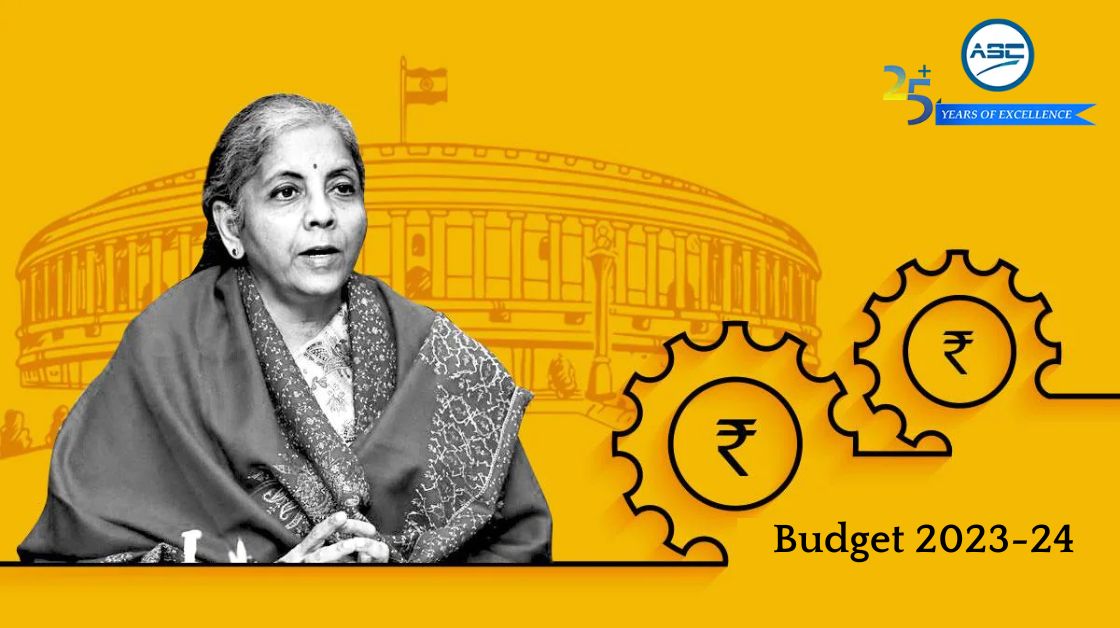


Budget 2023 was presented by Nirmala Sitharaman on 1st February 2023 and it was indeed a revolutionary budget, especially for the taxpayers and middle class. In this article, we have highlighted key highlights of Budget 2023 on GST with Interpretation and analysis by an industry experts. One of the major changes in the GST law in Budget 2023 was the decriminalization of certain offences. For this, Sections 132 and 138 of the CGST Act were amended.
In the Central Goods and Services Tax Act, 2017 (hereinafter referred to as the Central Goods and Services Tax Act), in section 10 -:
Now, according to the amendment, the Composition Dealer registered under GST and who is required to collect tax at source under section 52 is allowed to engage in the supply of goods through an e-commerce operator.
In section 16 of the Central Goods and Services Tax Act, in sub-section (2) -:
Now, it has been clarified that interest shall be paid as per Sec. 50 i.e. @18%.
Further, it has been clarified that the recipient shall be entitled to avail input tax credit on payment made by him to the supplier for the purchases made.
a)in sub-section (3), in the Explanation, for the words and figure “except those specified in paragraph 5 of the said Schedule”, the following shall be substituted, namely–
“except –
ASC Interpretation:
Earlier, common ITC was required to be reversed only on activities covered under para 5 (Sale of land and, subject to clause (b) of paragraph 5 of Schedule II, sale of the building) of Schedule III of CGST Act, 2017 however, now common ITC reversal is also required for activities covered under Para 8
“(fa) goods or services or both received by a taxable person, which are used or intended to be used for activities relating to his obligations under corporate social responsibility (CSR) referred to in section 135 of the Companies Act, 2013;”.
A new clause has been inserted in section 17(5) of CGST Act, 2017, due to which now companies will not be able to avail ITC on CSR activities performed by them.
For section 23 of the Central Goods and Services Tax Act, the following section shall be substituted and shall be deemed to have been substituted with effect from the 1st day of July, 2017, namely –
Persons not liable for registration:
“23. Notwithstanding anything to the contrary contained in sub-section (1) of section 22 or section 24 –
(a) the following persons shall not be liable for registration, namely –
Now, Section 23 (Persons not liable for registration) will overrule the Section 22 (Persons liable for registration) and Section 24 (Compulsory registration in certain cases).
“A registered person shall not be allowed to furnish its return for a tax period after the expiry of a period of three years from the due date of furnishing the said details”
Extended time limit for filing GSTR-1, GSTR-3B, GSTR-9- Annual Return and GSTR-7- TCS return is now three years from the due date of furnishing the return.
After the insertion of the above sub-section, E-Commerce Operator will be penalised Rs.10,000 or an amount equivalent to the amount of tax involved made by a registered person other than a person paying tax under section 10, whichever is higher shall be imposed if mentioned acts are committed.
ASC Interpretation:
Activities covered under para 7 (i.e. sale from non-taxable territory to another place in the non-taxable territory without such goods entering into India) and para 8 (i.e. High sea sales) shall neither be treated as supply of goods nor supply of services w.e.f. 01st July 2017.
Further, if tax has been paid on sales which are covered under para 7 & 8 then a refund on such sales shall not be provided considering that para 7 & 8 were in force from 01st July 2017.
In section 12 of the Integrated Goods and Services Tax Act, in sub-section (8) (Place of Supply in relation to transportation or courier of goods outside India), the proviso shall be omitted.
ASC Interpretation:
Earlier, according to the above-referred proviso, the place of supply of services by way of transportation of goods, including by mail or courier to a place outside India was a place of destination of goods i.e. Outside India and the Service provider needs to charge IGST, however after removal of the said proviso, the place of supply of such goods will be the location at which such goods are handed over for their transportation, So the service provider needs to charge CGST/SGST in case the Service recipient and Provider are situated in the same state.
NOTE: All the above amendments will come into force whenever CBIC will issue Notification for all the cases.
If you need any clarification regarding the Budget 2023 highlights, analysis, implementation, and how it will impact you and your business, feel free to contact the ASC Group.
























































Leave a Reply
Your email address will not be published. Required fields are marked *